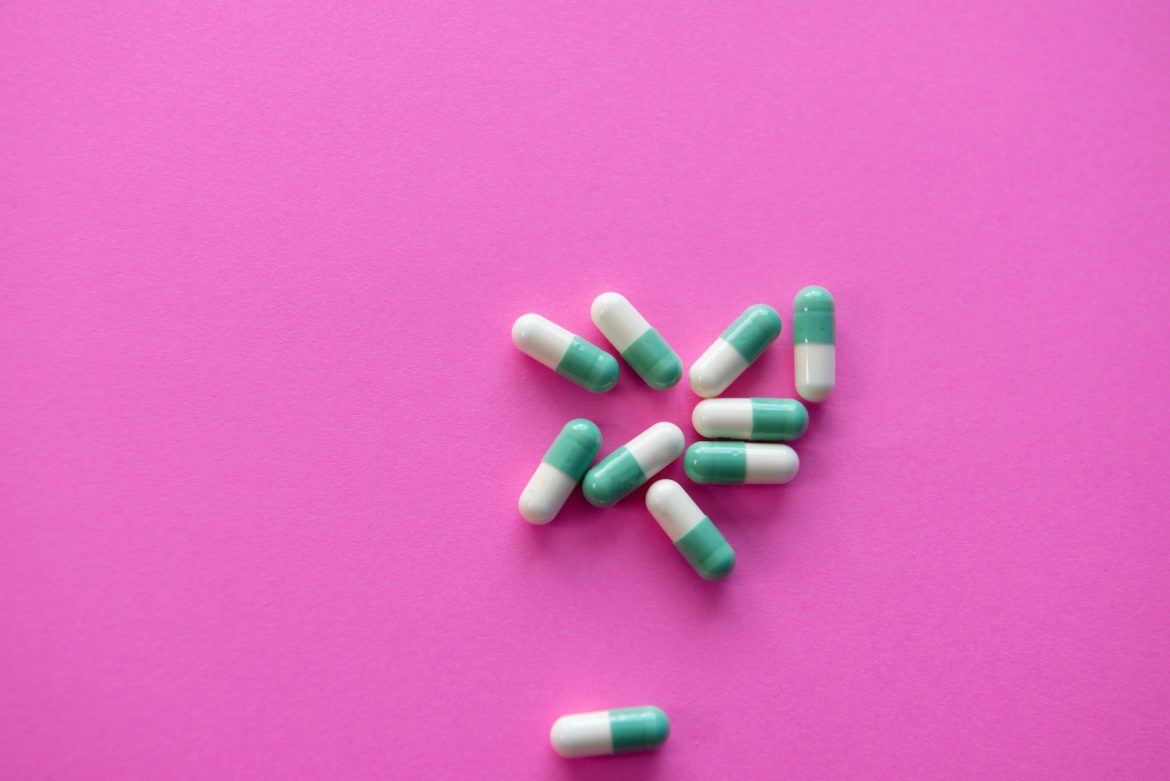Wednesday 15/3/2023
PHOTO: Christina Victoria Craft
Text: Alejandra Misiolek
Probiotics have become popular and are gaining more and more interest as even alternatives for antibiotics or anti-inflammatory drugs, however, often without really understanding well what they are and what is their actual function.
According to the proposed definition by FAO/WHO, probiotics must be alive and abundant once ingested. However, during recent years, new definitions are added to the probiotic terminology such as ‘paraprobiotics’ (dead/inactive cells of probiotics) and ‘postbiotics’ (healthful metabolites of probiotics. [1]
The actual probiotics are then live microorganisms that provide health benefits to the host (person that takes them) when ingested in adequate amounts. The strains most frequently used as probiotics include lactic acid bacteria and bifidobacteria. Probiotics have demonstrated significant potential as therapeutic options for a variety of diseases, but the mechanisms responsible for these effects have not been fully elucidated yet.
Several important mechanisms include the following:
- modification of the gut microbiota (the bacteria that live in our intestines)
- competitive adherence to the mucosa and epithelium (therefore protecting the permeability of the intestines)
- strengthening of the gut epithelial barrier and modulation of the immune system. [2]
And what would be their role in eating disorders?
First of all, it has been observed that disordered eating behaviors are not only a psychological condition, but they are also guided by biological processes associated with automatic (unconscious) events and that brain structure and function differ between people with active eating disorders and unaffected individuals. [3]
If we think about where Eds come from, some authors describe the genetic underpinnings, biological, social, cultural, and psychological factors as well as gut microbes that play an important role in the clinical manifestations of Eds. [4]
Owing to the fact that stress, hyperactivity, and appetite are all modulated by the HPA axis (hypothalamic–pituitary–adrenal), also called gut-brain axis, and that both are imbalanced in anxiety and Anorexia nervosa, it has been hypothesized that in both disorders the microbiota can have an important role. Interestingly, one of the factors that can influence the pathophysiology of anxiety and EDs is the composition of gut microbiota due to the strong association between the microbial signature and the brain function. [5]
Moreover, evidence is now growing that AN (Anorexia Nervosa)-induced starvation is associated with profound alterations of the gut microbiome, which is of critical interest given its important interactions with the host metabolism in terms of weight regulation, hormonal, immunologic and inflammatory processes, along with a direct influence on the brain and behavior. [5]
Owing to the fact that the gut–brain axis implies a bidirectional interaction between the gut microbiota and the central nervous system (CNS), the effects of such dysbiosis on brain function can be harmful.
The importance of the microbiota is threefold:
- It synthetizes the neurotransmitters such as serotonin, dopamine, gamma aminobutyric acid (GABA), acetylcholine, and glutamate (responsible for our emotional regulation and mood) and respond to hormones, meaning the microbiota is related to how we feel.
- It has its regulatory role in the appetite and satiety pathways, so it helps regulate our appetite and therefore weight.
- It is responsible for regulating the anti-inflammatory processes (diminishing the inflammation, that has harmful effects on our body).
- It is affecting the immunological response (it improves the defenses).
- Moreover, recent studies show that the gut microbiota modulates the reactivity of the HPA axis, which influences the endocrine pathway. Therefore, its imbalance can produce abnormal glucocorticoid levels and promote behavioral and emotional changes. [5, 6]
Although we can´t tell whether an intestinal dysbiosis is a cause or consequence of some mental disorders (including eating disorders), we can conclude that microbiota plays an important role.
Some previous studies have shown that probiotics alleviate psychiatric diseases, such as depression. However, whether probiotics affect eating disorders or are effective as an adjuvant treatment for AN remains to be explored. [7]
Sources:
- Bermudez-Brito, M., Plaza-Díaz, J., Muñoz-Quezada, S., Gómez-Llorente, C., & Gil, A. (2012). Probiotic mechanisms of action. Annals of Nutrition and Metabolism, 61(2), 160-174.
- Schaumberg, K., Welch, E., Breithaupt, L., Hübel, C., Baker, J. H., Munn‐Chernoff, M. A., … & Bulik, C. M. (2017). The science behind the academy for eating disorders’ nine truths about eating disorders. European Eating Disorders Review, 25(6), 432-450.
- Terry, S.M., Barnett, J.A. & Gibson, D.L. A critical analysis of eating disorders and the gut microbiome. J Eat Disord 10, 154 (2022).
- Navarro-Tapia, E., Almeida-Toledano, L., Sebastiani, G., Serra-Delgado, M., García-Algar, Ó., & Andreu-Fernández, V. (2021). Effects of microbiota imbalance in anxiety and eating disorders: probiotics as novel therapeutic approaches. International journal of molecular sciences, 22(5), 2351.
- Ghenciulescu, A., Park, R. J., & Burnet, P. W. (2021). The Gut microbiome in Anorexia nervosa: friend or foe?. Frontiers in Psychiatry, 11, 611677.
- Zhu, R., Tian, P., Zhang, H., Wang, G., & Chen, W. (2022). Gut microbiome-brain interactions in anorexia nervosa: Potential mechanisms and regulatory strategies. Neuropharmacology, 109315.
